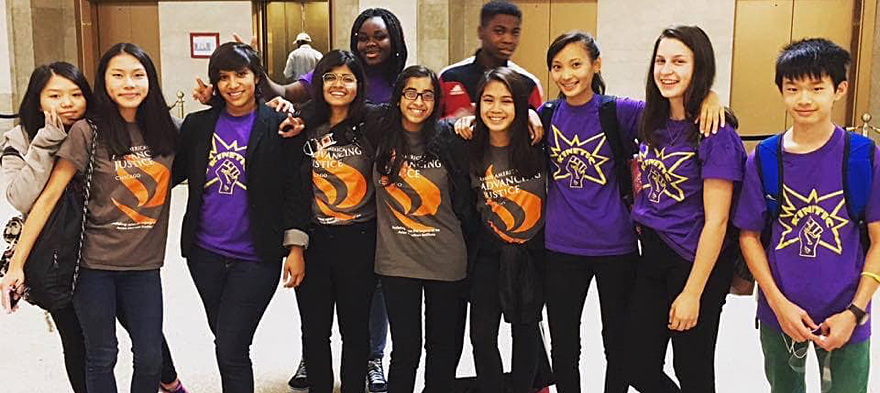
I have a distinct memory of playing catch with my dad in a public park during middle school, when a stranger yelled at my dad, “Go back to the country you came from!” I remember watching my dad fume at this experience of being “othered” in the very place he was born and raised, while also feeling confused about why he was targeted by this stranger we didn’t know.
While I had hoped that young Asian Americans today would not have to experience the same anxiety that I did as a child, this pandemic has proven me wrong.
This uptick in hate has been fueled by politicians expressing anti-Asian sentiment, including President Trump’s use of racist terms like the “Chinese virus” and a widely circulated Republican memo with blatantly false claims that “China has … exported plagues and fentanyl to the United States.”
As COVID-19 continues to wreak havoc on our communities, young people are watching their parents and trusted adults navigate this crisis and the flood of information that has come with it. What are they learning about whom to trust and whom to blame?
Like Black, Latinx, and indigenous communities, Asian Americans have been targeted by racist policies and violence instigated by hateful political rhetoric.
This legacy has reinforced wrongful views of Asian Americans as “perpetual foreigners,” spies and threats. This misled mentality has led to injustices like the mass incarceration of Japanese Americans during World War II and the surveillance of Muslim Americans after 9/11.
Though we are often overlooked in history books, Asian Americans have been, and will continue to be, an important part of our country’s rich history. In this time of divisiveness, it is critical that we educate our young people to recognize how Asian American history parallels and intersects with the experiences of other communities of color.
Growing up, I didn’t learn about the leadership of Asian Americans like Yuri Kochiyama and Grace Lee Boggs in the Civil Rights Movement. I didn’t learn about the solidarity between Filipino and Mexican laborers that led to the formation of the United Farm Workers and revolutionized the labor movement in America. The multiracial and multilingual organizing of the United Farm Workers inspires my own community organizing work, and I want students today to be inspired by these stories.
That’s why Asian Americans Advancing Justice | Chicago is leading a campaign to mandate Asian American history be taught in all Illinois public schools. The Teaching Equitable Asian American Community History Act (TEAACH) would paint a more complete picture of our shared history, respond to this moment of rising anti-Asian sentiment and ensure young Asian Americans see themselves reflected in the history they learn in school.
Asian American history explores the waves of immigration to the U.S. through war and changing labor dynamics—as well as the xenophobia and violence that manifested in these periods. This perspective on American history examines the deeper faults in our society, beneath the cracks that the pandemic has spotlighted.
Now is the time for us to act. Our campaign coincides with the May 2020 release of Asian Americans, a five-hour PBS documentary film series, and accompanying K-12 curricula (available in late-May) that we hope will help school districts and teachers incorporate this vital history into existing curricula. We call on school boards across the country to proactively include Asian American history in lesson plans and curricula for the 2020-2021 school year.
In your time stuck at home, watch the series with your family or organize a virtual watch party with friends. Call your local school board members or principal and ask them to commit to teaching Asian American history next school year. We are in an unprecedented moment of crisis and change. Let’s use this time as an opportunity to build bridges and promote equity in the classroom and beyond.
This post originally appeared on Chicago Unheard as "Here’s Why We Need Asian American History Right Now."
Grace Pai is the director of organizing at Asian Americans Advancing Justice Chicago. Grace has spent the last five years organizing in Chicago and training hundreds of organizers and community leaders across the country.
The fight for educational equity has never been just about schools. The real North Star for this work is providing opportunities for each child to thrive into adulthood. This means that our advocacy...
Your donation will support the work we do at brightbeam to shine a light on the voices who challenge decision makers to provide the learning opportunities all children need to thrive.
Ed Post is the flagship website platform of brightbeam, a 501(c3) network of education activists and influencers demanding a better education and a brighter future for every child.
© 2020–2024 brightbeam. All rights reserved.